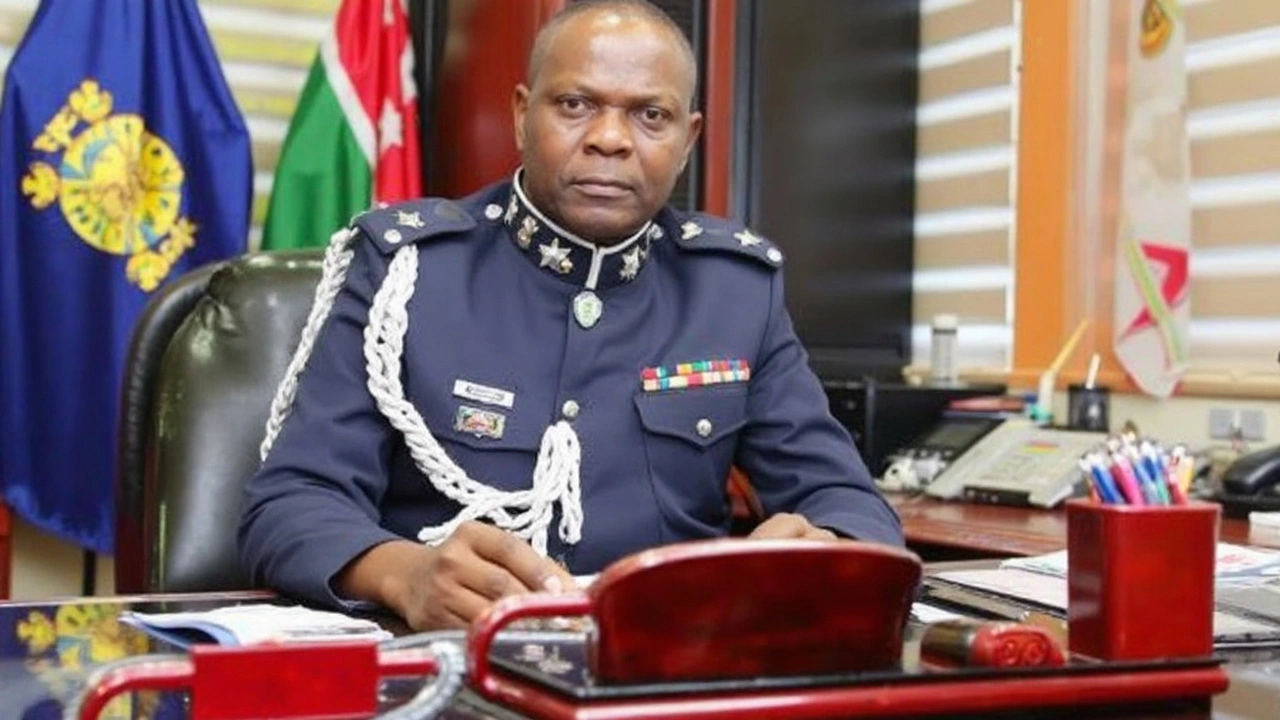Lagat’s Sudden Exit After Blogger’s Tragic Death
Kenyans woke up to rattling headlines this week as Eliud Kipkoech Lagat, the country’s Deputy Inspector General, unexpectedly resigned after 25 years in uniform. The move follows the shocking death of blogger Albert Ojwang while in police custody—a case that's raised big questions about police power, accountability, and freedom of speech in Kenya.
Ojwang’s last months were marked by bold posts online. He didn't hold back, openly accusing Lagat of corruption related to the placement of officers in high-stakes branches of the Directorate of Criminal Investigations and the traffic police, spots rumored to come with serious financial and influence perks. Lagat responded by filing a defamation complaint, which led to Ojwang’s swift arrest. Days later, the blogger was dead—a tragedy that tossed the spotlight onto Kenya’s policing system.
The chain of events moved quickly, but public anger spread even faster. Hashtags questioned the murky boundaries between the police force and freedom of expression. Commentators, activists, and civil society figures demanded more than empty promises: they wanted those responsible for Ojwang’s death held to account, whether rank-and-file or high command.
Pressure Mounts on Police Oversight and Civil Rights
Lagat’s departure doesn’t come in a vacuum. Before all this, he was considered one of the service’s brightest stars—a former GSU Commandant, expert in bomb disposal, counterterror operations, and a holder of serious academic credentials: a Master’s from the University of Nairobi in Armed Conflict and Peace Studies, and a Bachelor’s in Automotive Technology. His walls likely gleam with honors like the Elder of the Burning Spear (EBS), Order of the Grand Warrior (OGW), and a Head of State Commendation (HSC). None of that seemed to matter when Ojwang’s death made the headlines.
Human rights groups like Vocal Africa wasted no time, releasing statements that cut straight to the core: justice and full transparency from the Independent Policing Oversight Authority (IPOA), which has already faced its own criticisms about handling allegations of police misconduct. The message was clear—Lagat might have stepped down, but the pressure to deliver answers has only just begun.
For now, Lagat’s deputy has taken the reins in an acting capacity, but the police service is under a microscope. Law enforcement’s relationship with critics, especially outspoken media figures, is right back on the national agenda. For a country balancing security needs with hard-fought civil liberties, this case forces a wider conversation about just who is protecting whom in Kenya—and at what real cost.
The only certainty? The story is still unfolding, and those at the top will have to navigate questions that go well beyond a single resignation—especially as the demand for Eliud Lagat and his officers to face scrutiny grows louder by the day.


Shelby Mitchell
June 18, 2025 AT 07:04Kasey Lexenstar
June 18, 2025 AT 22:40They don’t fire the system. They just swap the face on the poster.
Kurt Simonsen
June 19, 2025 AT 08:47They’ll call it a 'transition.' We know it’s a cover-up with a retirement party.
Michelle Kaltenberg
June 20, 2025 AT 05:33Trevor Mahoney
June 20, 2025 AT 07:54Jitendra Patil
June 20, 2025 AT 12:20Kenya doesn’t need more chaos. We need strong men who don’t flinch when the streets get loud.
mona panda
June 20, 2025 AT 14:11Evangeline Ronson
June 20, 2025 AT 17:56Kenya has the opportunity to become a model-not by punishing one man, but by redesigning accountability from the ground up.
Cate Shaner
June 20, 2025 AT 23:36Thomas Capriola
June 21, 2025 AT 05:05Rachael Blandin de Chalain
June 21, 2025 AT 12:34Soumya Dave
June 22, 2025 AT 08:07Jared Ferreira
June 22, 2025 AT 15:32